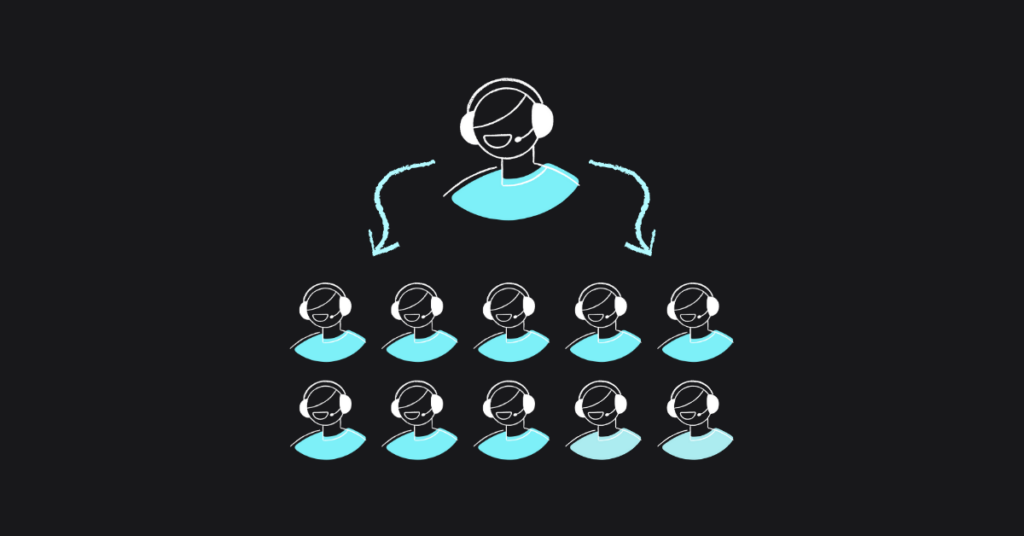
Table of contents
From rather humble beginnings in the 90s, VoIP technology has come a long way to where it is now set to become the standard for telecommunications. VoIP offers many advantages over traditional landlines. It is a much more sophisticated technology that is suitable to the demands of life in the 21st century. In spite of all that, its value proposition is simple at heart – voice calls at a fraction of the typical carrier price.
For the vast majority of consumers, switching to VoIP changes nothing except their monthly phone bill. Cost savings was the impetus for enterprises to upgrade to VoIP as well. However many organizations came to realize that the technology had so much more to offer. Businesses are now implementing unified communication tools on top of their existing VoIP implementation. The industry itself is growing at a furious pace, thanks partly due to increased availability of high-speed Internet broadband.
Even though the VoIP industry has matured and changed quite a bit, a central question remains unresolved. How should the government regulate the VoIP industry? The crux of the matter is that no one is quite clear on how to classify providers. Are VoIP service providers equal to telephone operators in the traditional sense? Since VoIP relies on the Internet, should it be classified as an information service only?
The Beginning of VoIP Regulation
Trying to figure out the regulatory framework with regards to VoIP is not a new endeavor. It began in the early 90s when an association of telephone operators filed a petition regarding VoIP providers. At that point, carriers worried that VoIP services would constitute unfair competition as they were not burdened by the same regulatory standards and fees. The petition asked for the FCC to either regulate VoIP services on the same footing as standard telephony operators or to relax the rules for everyone across the board.
Since then there has been a variety of rules and decisions from the FCC as well as other regulatory bodies on VoIP. However the legal and regulatory status of VoIP remains unclear to this day. Some people may wonder what the fuss is all about – let the FCC decide one way or the other and be done with it right? But the decision regarding the status of VoIP will have far-reaching consequences.
VoIP As Information Service
Since the beginning there have been strong and compelling arguments on both sides of the debate. VoIP service providers would naturally prefer not to be burdened by the same regulations hindering the PSTN operators. If VoIP was to be considered as an information service only, vendors will not be subject to the universal service fee. Traditional phone carriers have to pay this fee which goes towards programs that guarantee universal access to telephone service. These programs are greatly beneficial to people living in poverty-stricken areas as well as hearing-impaired people.
In addition, VoIP vendors do not have to worry about regulation and charges from 50 different states and even local municipalities. Stricter regulation from multiple states has the potential to drive hundreds of VoIP service providers out of business. The VoIP industry is still young – especially when compared to its much older PSTN counterpart. Regulatory burdens along with various fees and surcharges can quickly kill the growing demand for VoIP services.
VoIP As a Telecom Service
On the other hand, there are compelling arguments for regulating VoIP as a traditional telecom service. For one thing, VoIP has already replaced PSTN based communication in many parts of the country. In other words, VoIP has become the default and only choice for voice calls in some areas. In the absence of regulation, service providers are under no obligation to provide basic access for all consumers in a region. Unfortunately this means that groups like low income households or disabled individuals are at higher risk of losing telephone access.
Even though VoIP services are delivered in a different manner than traditional landlines, functionally they are the same. If VoIP is going to replace landlines, why shouldn’t the FCC regulate it in the same manner? Consumer groups fear that the absence of regulation would mean fewer protections for consumers. A good example of this relates to emergency service access. The lack of regulatory oversight meant that VoIP providers were not obligated to provide 911 access to their users. Today VoIP users are able to reach emergency services thanks to the E911 initiative, largely because the FCC made it mandatory for VoIP vendors.
As we can see, the decision to regulate VoIP as a telecom or information service is not a simple one. Laws and regulations often lag behind technological advances but it is about time for them to catch up. If VoIP is going to become the de facto communication standard, it is time to resolve the issue of regulation once and for all.
More from the blog
Want to improve your business communication?
Unlock enterprise-class call center power at affordable prices – no hardware, no delays, no surprises!






